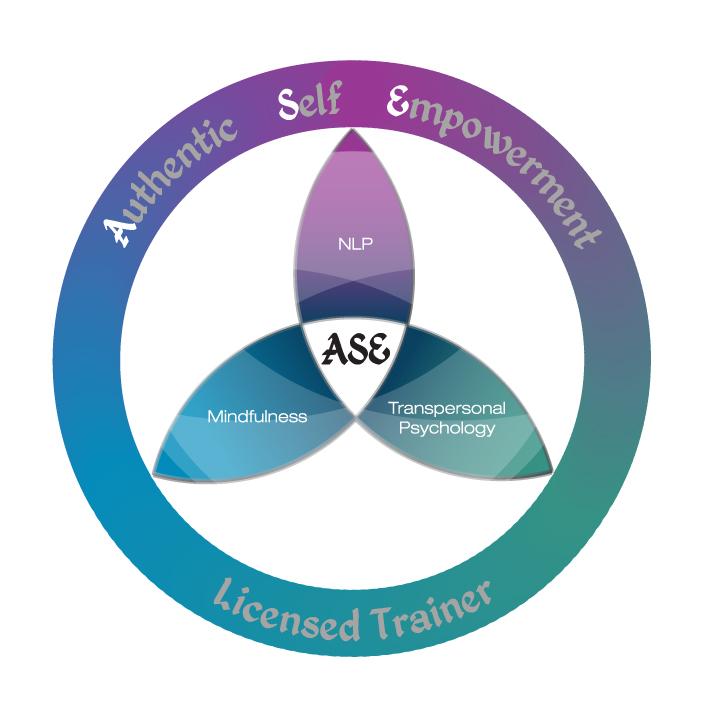Transpersonal Coaching & Therapy Network Forum
Use of this forum is exclusively for TCTN members.
.
For information about TCTN membership (free) visit the TCTN page.
.
Register or login below to add a new forum topic or respond to an existing topic.
Notifications
Clear all
TCTN Forum
4
Posts
2
Users
0
Reactions
2,026
Views
Topic starter
16/10/2019 3:46 pm
One of the areas where a transpersonal coaching can help a client is dealing with anxiety. Anxiety can be present for various reasons, one of them being supressed unconscious materials. For that task, psyche uses mechanism known as a defence mechanisms.
Defence mechanisms are viewed as unconscious psychological mechanisms that defend conscious mind against an affect or unacceptable idea. They could protect ego structure from unconscious sexual or aggressive wishes, preserve a sense of self-esteem in the face of shame and narcissistic vulnerability, ensuring a sense of safety when one feels dangerously threatened by abandonment or other perils, and insulating oneself from external dangers.
Examples of Defence Mechanisms:
Identification with the Aggressor
Identification with the aggressor is a defence mechanism where victim adopting the behaviour of a person who is more powerful and hostile toward them, in order to avoid abuse, as the aggressor may begin to feel an emotional connection with the victim which leads to feeling of empathy.
Repression
Repression is an unconscious defence mechanism employed by the ego to keep disturbing or threatening thoughts from becoming conscious. Thoughts that are often repressed are those that would result in feeling of guilt from the superego. This is not a very successful defence in the long term, since it involves forcing disturbing wishes, ideas or memories into the unconscious, where although hidden, they will create anxiety. Repressed memories may appear through subconscious means and in altered form, such as dreams or slips of the tongue. Therefore, during a transpersonal coaching session, it can be useful to explore slips of tongue when a client is in Open Awareness.
Topic starter
16/10/2019 3:47 pm
Projection
Projection is a psychological defence mechanism in which an individual attributes unwanted thoughts, feelings or motives onto another person. Most commonly projected thoughts are the ones that would cause guilt.
Displacement
Displacement is the redirection of an impulse (usually aggression) onto powerless substitute target. The target can be a person or an object that can serve as a symbolic substitute.
Sublimation
Sublimation is similar to displacement but takes place when we manage to displace our unacceptable emotions into behaviours which are constructive and socially acceptable, rather than destructive activities. For example, sport is a medium where aggression can be put into something positive.
Denial
Denial is a defence mechanism which involves a refusal to accept reality, thus blocking external events from awareness. If a situation is just too much to handle, the person may respond by refusing to perceive it or by denying it exist. For example, a wife or a husband may refuse to accept obvious signs of partner’s infidelity.
Regression
Regression is a defence mechanism where the ego reverts to an earlier stage of development usually in response to stressful situation. Regression functions as a from of retreat, enabling a person to psychologically go back in time to a period when the person felt safer. A good example of this is when we feel troubled or frightened, our behaviour often becomes more childish or primitive.
Rationalization
Rationalization is a defence mechanism involving a cognitive distortion of “the facts” to make an event or an impulse less threatening. We do it often enough on a conscious level when we provide ourselves with excuses. For many people with sensitive egos, making excuses comes so easy that they never are truly aware of it. When a person finds a situation difficult to accept, they will make up a logical reason why it has happened.
Splitting
Splitting is a defence mechanism where experience of self and other is compartmentalized in such a way that integration is not possible. When the individual is confronted with the contradictions in behaviour, thought, or affect he or she regards the difference with bland denial or indifference. This defence prevents conflict stemming from the incompatibility of the two polarized aspects of self or other. With this defence mechanism, transpersonal coaching techniques such as shadow integration and/or parts integration can be used to help a client to integrate opposite parts.
This post was modified 6 years ago by vladimir.vujovic
21/10/2019 2:02 pm
Hi Vladimir,
Nice summary of possible defence mechanisms.
How would a transpersonal coach approach integrating these mechanisms differently than say a psychotherapist?
Hennie
Topic starter
15/12/2019 8:50 pm
Hi Hennie,
In my opinion, transpersonal coach would't approach differently than a psychotherapist, as defence mechanisms suggest that unacceptable or potentially harmful stimuli is present behind it.
By recognising a particular defence mechanism, transpersonal coach could help a client identify that stimuli and help him resolve it. In this way, for example, anxiety can be reduced.
Vladimir
This post was modified 6 years ago by vladimir.vujovic
One of the areas where a transpersonal coaching can help a client is dealing with anxiety. Anxiety can be present for various reasons, one of them being supressed unconscious materials. For that task, psyche uses mechanism known as a defence mechanisms.
Defence mechanisms are viewed as unconscious psychological mechanisms that defend conscious mind against an affect or unacceptable idea. They could protect ego structure from unconscious sexual or aggressive wishes, preserve a sense of self-esteem in the face of shame and narcissistic vulnerability, ensuring a sense of safety when one feels dangerously threatened by abandonment or other perils, and insulating oneself from external dangers.
Examples of Defence Mechanisms:
Identification with the Aggressor
Identification with the aggressor is a defence mechanism where victim adopting the behaviour of a person who is more powerful and hostile toward them, in order to avoid abuse, as the aggressor may begin to feel an emotional connection with the victim which leads to feeling of empathy.
Repression
Repression is an unconscious defence mechanism employed by the ego to keep disturbing or threatening thoughts from becoming conscious. Thoughts that are often repressed are those that would result in feeling of guilt from the superego. This is not a very successful defence in the long term, since it involves forcing disturbing wishes, ideas or memories into the unconscious, where although hidden, they will create anxiety. Repressed memories may appear through subconscious means and in altered form, such as dreams or slips of the tongue. Therefore, during a transpersonal coaching session, it can be useful to explore slips of tongue when a client is in Open Awareness.
Projection
Projection is a psychological defence mechanism in which an individual attributes unwanted thoughts, feelings or motives onto another person. Most commonly projected thoughts are the ones that would cause guilt.
Displacement
Displacement is the redirection of an impulse (usually aggression) onto powerless substitute target. The target can be a person or an object that can serve as a symbolic substitute.
Sublimation
Sublimation is similar to displacement but takes place when we manage to displace our unacceptable emotions into behaviours which are constructive and socially acceptable, rather than destructive activities. For example, sport is a medium where aggression can be put into something positive.
Denial
Denial is a defence mechanism which involves a refusal to accept reality, thus blocking external events from awareness. If a situation is just too much to handle, the person may respond by refusing to perceive it or by denying it exist. For example, a wife or a husband may refuse to accept obvious signs of partner’s infidelity.
Regression
Regression is a defence mechanism where the ego reverts to an earlier stage of development usually in response to stressful situation. Regression functions as a from of retreat, enabling a person to psychologically go back in time to a period when the person felt safer. A good example of this is when we feel troubled or frightened, our behaviour often becomes more childish or primitive.
Rationalization
Rationalization is a defence mechanism involving a cognitive distortion of “the facts” to make an event or an impulse less threatening. We do it often enough on a conscious level when we provide ourselves with excuses. For many people with sensitive egos, making excuses comes so easy that they never are truly aware of it. When a person finds a situation difficult to accept, they will make up a logical reason why it has happened.
Splitting
Splitting is a defence mechanism where experience of self and other is compartmentalized in such a way that integration is not possible. When the individual is confronted with the contradictions in behaviour, thought, or affect he or she regards the difference with bland denial or indifference. This defence prevents conflict stemming from the incompatibility of the two polarized aspects of self or other. With this defence mechanism, transpersonal coaching techniques such as shadow integration and/or parts integration can be used to help a client to integrate opposite parts.
Hi Vladimir,
Nice summary of possible defence mechanisms.
How would a transpersonal coach approach integrating these mechanisms differently than say a psychotherapist?
Hennie
Hi Hennie,
In my opinion, transpersonal coach would't approach differently than a psychotherapist, as defence mechanisms suggest that unacceptable or potentially harmful stimuli is present behind it.
By recognising a particular defence mechanism, transpersonal coach could help a client identify that stimuli and help him resolve it. In this way, for example, anxiety can be reduced.
Vladimir
THIS FORUM IS FOR:
- Exploring the value of transpersonal perspectives in coaching or therapy.
- Investigating the usefulness of transpersonal interventions in coaching or therapy.
- Engaging in conversations to inspire and motivate a transpersonal vision among coaches and therapists.
- Introducing and discussing transpersonal models and processes that can be applied in coaching or therapy.
- Sharing ideas, knowledge, experiences and resources that are useful to transpersonal coaches or therapists.
FORUM RULES:
- Only TCTN members are permitted to post in the TCTN forum. Membership is free
- Posts that are offensive, biased, unethical, unfair or generally negative will not be accepted.
- Any misconduct on the part of a member will result in that member being removed from TCTN and all their member benefits withdrawn.
- It is acceptable to link to published papers, articles and resources that are directly related to the topic of the forum post, however, promoting of services will not be allowed unless the service is relevant and has been granted the IACTM Stamp of Approval.









